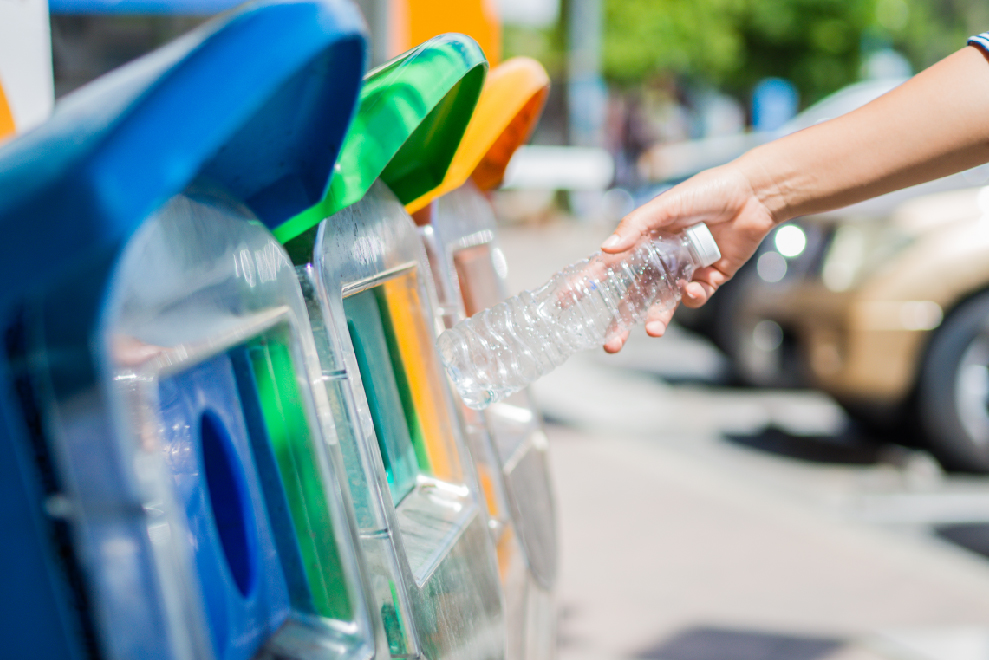Over the past 20 years, municipalities across the US have been steadily increasing their recycling recovery rates, or the amount of municipal solid waste (MSW) they are able to divert away from landfill. In fact, since the turn of the millennium, national recycling figures have increased by more than 25%, with year-on-year growth pushing the total figure to just under 68 million tons in 2015.
Since China’s 2017 effective ban on importing many recyclable materials it had previously accepted from the United States, this steady rise has stalled—with many recycling facilities struggling to meet demand due to the sheer weight of material that needs to be processed and the labor-intensive need to separate clean from “contaminated” recyclables, due to Americans’ imperfect recycling habits. Additionally, there are huge variations in what each city and municipality can or will recycle. In this context, it is difficult to see how the US recycling industry might adapt and grow to meet the nation’s needs.
But that’s not to say there’s no hope for the future. Certain ground-breaking city initiatives have begun to blaze a trail with innovative recycling programs that promote environmental stewardship and individual action. It is hoped, that as these programs continue to take root, they will go on to serve as models for the entire nation, reducing the landfilling of materials on ever-growing scales.
Here we take a look at some of those forward-thinking cities and how they are redefining municipal waste management and recycling in the 21st century.
Phoenix, AZ
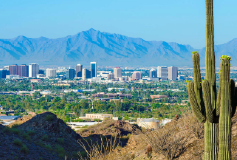
Phoenix’s recent multimillion-dollar investment in a region-wide recycling scheme has placed it firmly on the zero waste map. By announcing a realistic goal of 40% landfill diversion by 2020, and a zero-waste goal by 2050, the city has adopted a pragmatic and planned approach to waste management. Phoenix is promoting real change both by setting realistic diversion rates that encourage accurate measurement – unlike some cities and companies that set unrealistically high goals – and by acknowledging and budgeting in for recycling and compost market realities to ensure that materials are actually recovered. Phoenix does this by forging creative outside partnerships, including with Arizona State University (ASU) and the Resource Innovation and Solutions Network incubator (RISN).
To date, RSIN has incubated 16 companies and created 74 jobs with a total of $5.17 million in revenue generated. In tandem with the city, plans are to continue this modular approach to waste management, creating a more resilient system that can adapt to future changes. The real innovation here, however, lies in the collaboration between two parties; with the RSIN offering business acumen and cash, and Phoenix Public Works providing access to space/land and a guaranteed stream of recyclables to ensure that innovative startups can grow and develop.
One former Material Recovery Facility (MRF) has now become a Resource Innovation Campus, and it is hoped that many of the modular solutions being developed at this location will eventually be flexible enough to scale regionally. More information can be found on the Reimagine Phoenix website, including details on existing services, alongside a wealth of educational materials for companies and citizens.
More broadly, Phoenix is leading the “Smart Cities” movement in the US through projects like the Greater Phoenix Smart Region Initiative, a public-private partnership between ASU and the Institute for Digital Progress that leverages scale for impact by integrating Smart Cities offerings throughout 22 area municipalities.
New York, NY
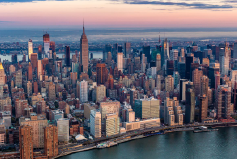
Perhaps unsurprisingly, New York is among those cities looking to the future. Pledging to send zero waste to landfill by 2030 as part of the OneNYC program, New York’s ambitious approach to recycling is making waves across the city. Developed through a collaborative process in 2016, the zero waste guidelines encourage architects, planners, developers, city officials, waste haulers, recycling experts, building managers, business owners, and the general public to work together to refine existing systems and build new ones.
For NYC residents and all types of agencies and institutions, decals, signage, and information showing the materials accepted for recycling are available for free. Upon sign up, residents and business owners also receive the DSNY’s monthly Zero Waste email newsletter, detailing the latest developments and changes to the guidelines as they happen, including the latest updates to the city’s Organics Recycling Laws.
Los Angeles, CA
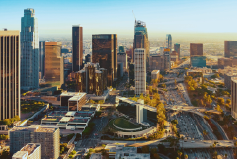
LA’s Solid Waste Integrated Resources Plan (better known as the Zero Waste Plan) aims to achieve the goal of 90% waste diversion by 2025, rising to 97% by 2030. Introduced in 2013, the plan highlights both manufacturer and consumer responsibilities in the fight for a cleaner city. The guiding principles were developed by a public outreach program that brought together more than 3,000 stakeholders, ensuring that many different voices had a say on how recycling can and should be improved.
Resources for businesses and private citizens are available at the Rethink LA portal, where advice and guidance on waste reduction and recycling can be downloaded. Additionally, the CalRecycle website offers further information on wider state policies and programs.
San Francisco, CA
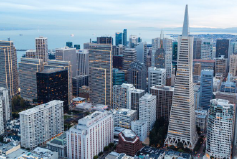
In both 2002 and 2003, San Francisco set goals of 75% diversion by 2010 and zero waste by 2020 respectively—making it one of the earliest adopters of ambitious zero-waste policies. The city introduced one of the first composting collection programs in the US, as well as a plastic bag ban in 2013.
Numerous programs and laws now exist to reduce waste and increase recycling, including; the Zero Waste Textile Initiative, the Cigarette Litter Abatement Ordinance, and the Construction and Demolition Ordinance. Additionally, customizable signs are available for businesses to streamline waste management operations.
Seattle, WA
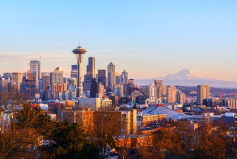
Seattle’s commercial recycling program was made mandatory in 2013, and in 2010 it adopted a zero-waste policy that aimed to design and manage products and processes to eliminate landfill and incineration. In addition to this, the city provides numerous resources to help both businesses and citizens recycle more efficiently.
These include Recycle-It, a smartphone and tablet app that allows customers to check collection days and set reminders, while also offering information about recycling, composting, and garbage services. Other initiatives include local composting sites and smaller trash cans designed to ensure materials are separated correctly and recycled properly.
Boise, ID

Among Boise’s numerous recycling initiatives, the Hefty® EnergyBag® stands out as particularly innovative, allowing residents to recycle previously non-recyclable plastics by collecting them in an orange bag. Over 550,000 bags have been collected so far, although a recent upgrade to Renewology’s facilities means the program has been temporarily paused. However, bags are still being collected and stored for later processing.
In addition to this, the city’s reference guides for both homes and business provide a valuable resource to ensure that separation and sorting is optimized, while a regularly updated recycling calendar allows citizens to keep up with curbside collections.
Portland, OR
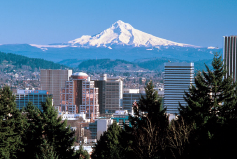
The City of Portland aims to increase material recovery rates to 90% by 2030, engaging citizens and businesses in a range of initiatives including a comprehensive youth education program. Available free of charge to schools and young adult groups, it includes a broad range of resources designed to raise awareness of recycling, composting, and climate change as a whole aim to ensure that future generations have the tools and skills required to achieve truly zero waste.
Alongside these initiatives, Portland offers a broad range of detailed guides, advice, and technical assistance for houses, multifamily communities, businesses, construction and demolition projects, and event staging that can be found here.
San Diego, CA
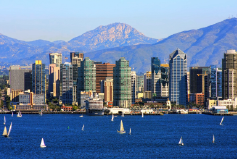
Like much of California, San Diego has long been at the cutting edge of waste diversion and recycling. Its Zero Waste Plan is now aiming for “zero” by 2040, with the city heavily investing in new technologies and promoting awareness throughout its communities. This also includes a Resource Recovery Center at the Miramar Landfill to maximize diversion, even at the final stages of the waste management journey.
San Diego’s recycling programs cover a huge range of materials and industries, and as of 2012, its mandatory recycling requirements have applied to all single-family homes, apartments and condominiums, and privately serviced businesses and commercial/institutional facilities. A detailed recycling guide is also available here.
Boston, MA
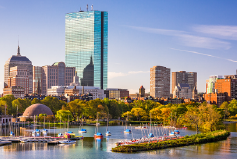
Boston’s Zero Waste initiative was introduced in 2018 and is striving to achieve 80% diversion by 2030. Offering residents and businesses a wealth of information alongside a range of practical toolkits designed to help residents reduce, repair, and recycle materials effectively and efficiently, the city has drastically improved its recycling and material recovery reputation in recent years.
Additionally, 2018 also saw the introduction of the city’s plastic bag ordinance, mandating that stores can only give reusable bags, recyclable paper bags, or compostable checkout bags to customers and that Boston retailers can no longer stock single-use plastic bags with handles.
Denver, CO
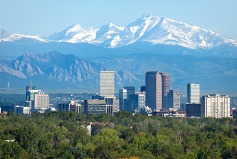
The City of Denver’s plan to make it “One of the Greatest Recycling Cities in the US” is certainly ambitious. Its recent collaboration with The Recycling Partnership is helping to raise awareness through a range of pilot routes designed to increase the types of materials residents can add to their purple recycling carts. One of these pilots encourages increased aluminum and steel can diversion – with on-the-ground experts assigned to routes, guiding residents by providing information cards detailing how to properly recycle these materials. This information will also be available in mailers, signs, and social media.
All this is supported by the Denver MRF that was opened in 2013. This new facility supports curbside recycling and provides a drop-off point for commercial single-stream recycling. Additionally, the Denver Recycle website offers both the public and commercial organizations a wealth of information on everything from composting to hazardous waste disposal.
![]()
For more information on how we can help your business contact our LEED-accredited team today. Alternatively, read our insightful case studies for real-world examples of how our advanced hauler technology is streamlining waste management in cities across the US.

